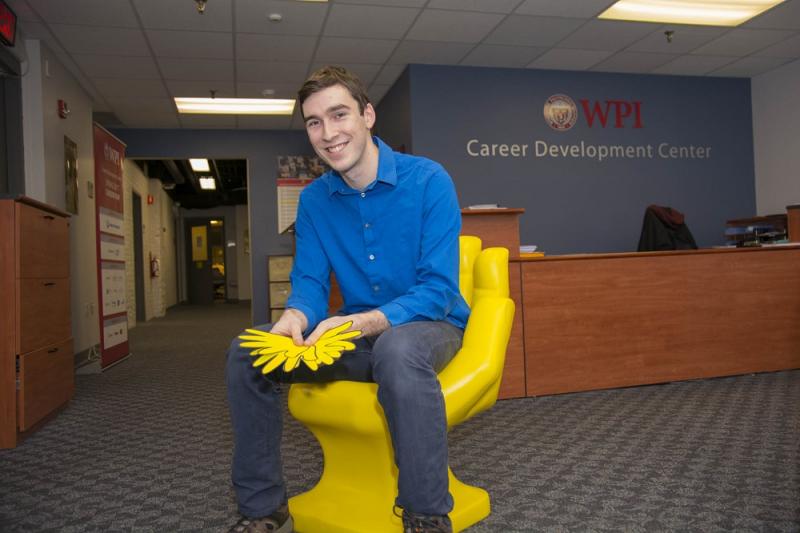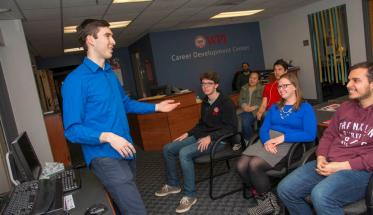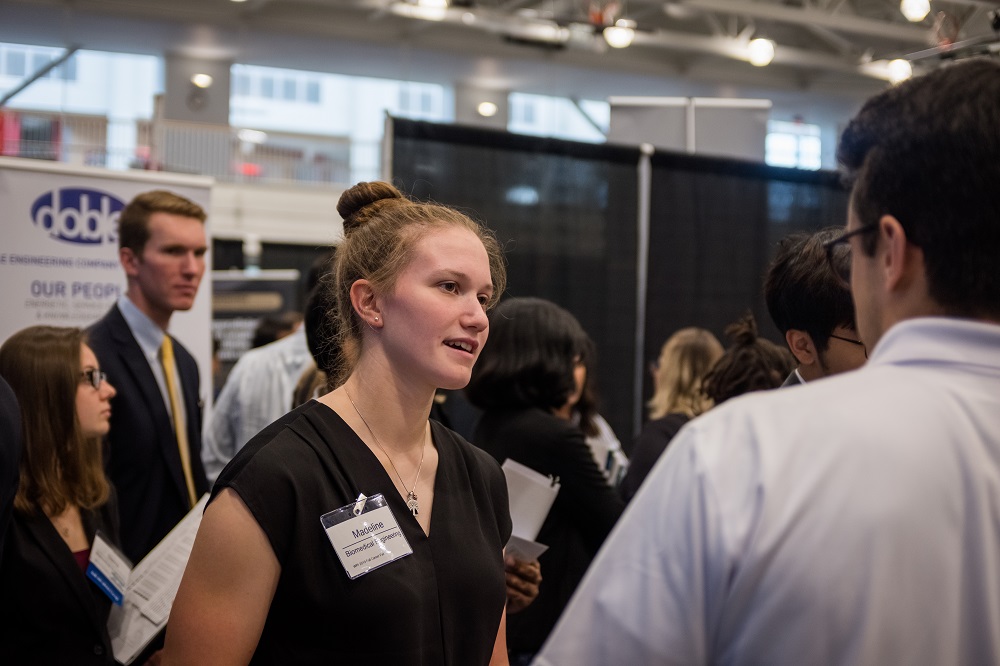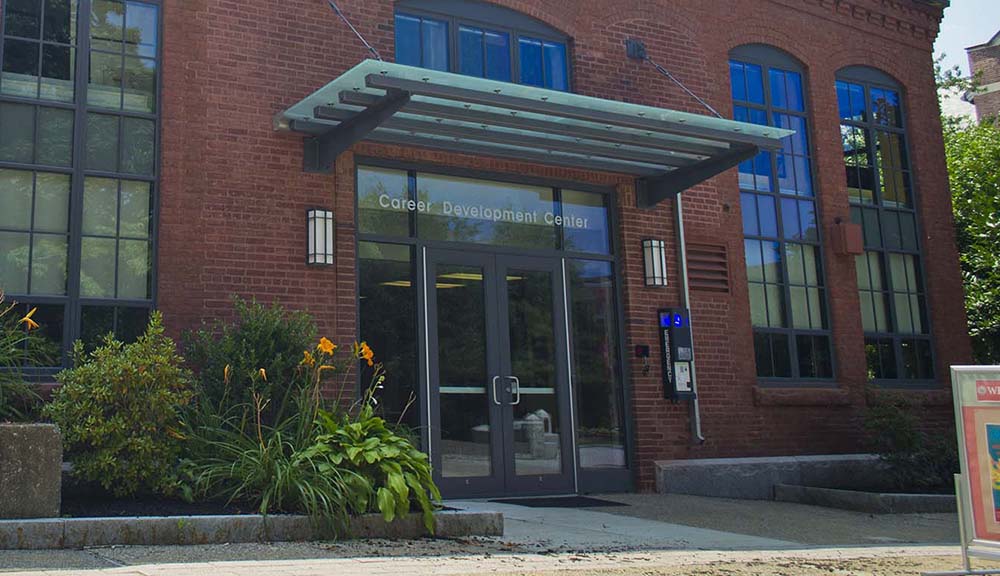It can look like a daunting task for students who already have classwork, projects, and presentations. Searching for an internship, co-op, or full-time work—especially full-time work—takes time, effort, and strategy. Getting started can sometimes be the most difficult thing, but it’s a huge step forward in an important process.

Jeffrey Letourneau, Steve Koppi
“Students often feel concerned about where to begin … and the CDC offers workshops, drop-in hours, scheduled appointments, online resources, and the latest technology to help students,” says Career Development Center executive director Steve Koppi.
At a recent CDC workshop, Job Search Strategies in the Life Sciences, attendees were offered insight into how to go about the job-search process with efficient tools, helpful resources, and a strategic mindset.
Handshake is the CDC’s software platform allowing employers across the country to search for WPI students and graduates. Students can register for events, schedule interviews, and post resumes on the network. Used in tandem with other job-search techniques, it is a helpful tool, says CDC peer advisor Jeffrey Letourneau ’17, who conducted the workshop.
At the session, cover letters and letters of inquiry were also discussed; Letourneau showed students how to search online for career areas on which to focus. One student was interested in microbiology, for example. A Google search showed hospitals and nonprofits that do microbiology, and Letourneau explained how to narrow those locations down to their desired geographic region.
This kind of targeted, planned search effort with support from the CDC and Handshake can help reduce anxiety levels, he says, and makes for more confident and informed job hunters.

Jeffrey Letourneau
Koppi and Letourneau suggested some ways students can conduct a productive job search and application process:
Cast a wide net. “Many students believe they should only apply for opportunities that precisely match their qualifications, but hiring is not an exact science,” says Koppi. "Job seekers can benefit by considering a broader scope of opportunities."
Research companies. “It’s important to do this as soon as possible, even if that company has no jobs available,” says Letourneau. "This effort will come in handy when positions do open up. Save job postings with companies you are interested in—even ones that have been filled—for future reference."
Practice time management. Koppi advises setting aside time each week to focus on a job search, and setting small goals. This way it doesn’t appear as a looming task, and job hunters are less likely to procrastinate.
Get out there. Letourneau, who originally came to WPI to study engineering, says the CDC helped shape his new idea of what he wanted to major in—biology and biotechnology. He recommends internships, and has taken on two during his time at WPI—at a huge corporation and at a smaller start-up: AbbVie in Worcester and Corbus Pharmaceuticals in Norwood.
Layer efforts. “Use a multi-faceted strategy," says Koppi. " including career fairs, networking, LinkedIn, and online applications, in addition to Handshake."
Stay organized. This can be a matter of personal preference, but may include bookmarking, a physical binder, or an Excel sheet. “Whatever works,” says Letourneau. "Setting goals and applying early enough is key."
Line up informational interviews. "They’re a great way to get a firsthand account by someone in a field you’re interested in," says Letourneau.
Koppi says Handshake is just one of myriad resources available to students at the center. Students can also make appointments for help or come in during CDC drop-in hours. This recent workshop was just one of many.
“The CDC offers over 150 workshops annually,” he says. “Many of our best workshops are customized for specific organizations or departments. Workshop requests can be made from our website, using TechSync."
- By Susan Shalhoub




